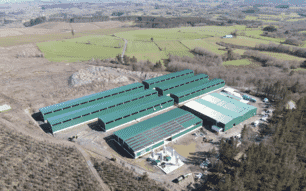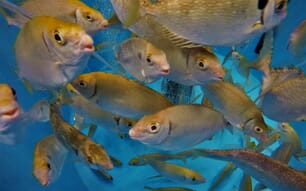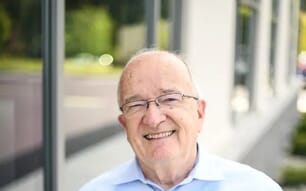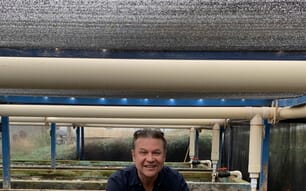The discussion, facilitated by Sustainable Fisheries Partnership’s Communication and Strategy Director Blake Lee-Harwood, went on to consider the role of certification programmes in relation to these issues and how ASC can help further support the industry.
ASC’s CEO Chris Ninnes said: “By no means is ASC’s work done. The ASC programme must not remain static – it has to evolve and develop. It’s important for us to ensure there is a global market for those responsible producers and that they are rewarded for their efforts. It is through the hard work and dedication of our partners throughout the value chain that they are delivering environmentally and socially responsible choices to consumers.”
Facing the challenges
Marine Harvest’s Group Environment & Sustainability Manager Catarina Martins talked about the experiences of Marine Harvest as they worked towards ASC certification and the challenges of meeting the ASC standard.
“Across our farms we have made significant improvements to meet the ASC standards, from improved benthic monitoring to increased engagement with the local communities. In facing the challenges of the salmon industry it’s essential that we continually innovate to drive improvements in environmental and social responsibility. ASC has been important to trigger numerous R&D activities such as the development of more friendly net coating solutions,” Ms Martins said.
“The ASC salmon standard will certainly contribute to making the salmon industry more sustainable and innovative.”
Colruyt’s Sustainable Sourcing Manager Philippe Toussaint reflected on the aspects of aquaculture that customers are concerned about and what retailers expect from certification programmes.
“There is an increased demand for sustainable seafood and it is important for retailers to provide consumers with choices. In parallel with wild fish products, we need aquaculture to meet the demand for seafood, however, it must be done responsibly,” Mr Toussaint explained.
“Consumers are demanding and need to be reassured. ASC gives us a serious tool to explain how aquaculture can be environmentally and socially responsible – it has strictly defined limits and through traceability we can assure our consumers that their seafood purchase comes from a responsibly managed farm. Above all, we want to support the important efforts of the sector."
A robust chain of custody for aquaculture feed
Seafish Head of Advocacy Libby Woodhatch highlighted the key social issues that the industry faces.
“Ethics in the supply chain is a big issue and practises that undermine the rights of workers threaten the reputation of the industry,” Ms Woodhatch said.
“Businesses along the supply chain need robust evidence of good social practice. The Responsible Fishing Scheme, which is underpinned by ILO 188, is the only global standard that audits compliance on-board the fishing vessel, including social and ethical criteria. So, feed mills that source from certified vessels can be confident that the vessel and skipper operate best practice. This complements ASC certification which confirms best social and environmental practices at a farm level.”
Trygve Berg Lea, Sustainability Manager, Skretting Group, explained how Skretting has long supported responsible aquaculture.
“Skretting has supported the work of the ASC standards from the beginning and, today, we are proud to deliver feed to ASC certified farms in a number of countries such as Norway, The UK, Canada and Italy.”
During his update Mr Ninnes also provided the latest on the ASC Responsible Feed Project, describing how best practice will be enshrined in the new standard.
“Fish feed sustainability is a complex challenge and we need a range of tools to address the issues. Through the feed project we have brought together experts who will jointly develop the requirements for a feed standard. Through collaboration we can develop the consensus needed to improve the environmental performance of key feed ingredients,” Mr Ninnes said.
“The feed standard will bring consistency in how the aquaculture feed industry tackles the sustainability and social responsibility issues around feed and with independent certification we can share that best practice.”




